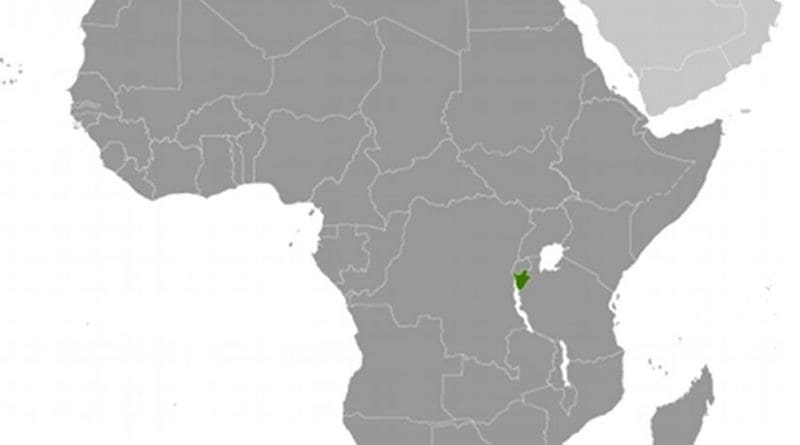Burundi: Abductions, Killings, Spread Fear, Says HRW
The Burundian authorities are targeting perceived opponents with increased brutality. Government forces are killing, abducting, torturing, and arbitrarily arresting scores of people at an alarming rate.
As the capital, Bujumbura, descends into new levels of lawlessness, patterns of human rights abuses have shifted. Whereas dead bodies on the streets of Bujumbura were a daily occurrence in the second half of 2015, many abuses are now taking place under the radar, with security forces secretly taking people away and refusing to account for them.
“The Burundian police, military, intelligence services, and members of the ruling party’s youth league are using increasingly brutal methods to punish and terrorize perceived opponents,” said Daniel Bekele, Africa director at Human Rights Watch. “Government forces and the ruling party are treating suspected opponents with extreme cruelty and viciousness, which could further escalate the violence.”
Security forces have tortured or ill-treated suspected opponents so severely during arrests or in detention that some almost died. Security forces beat victims with rocks, bricks, gun butts, or metal rods. Most of those arrested are young men accused of participating in or supporting armed opposition groups.
Human Rights Watch researchers interviewed more than 63 people in Bujumbura between November 2015 and February 2016, including victims, their relatives, witnesses, residents of areas where abuses occurred, human rights activists, lawyers, journalists, judicial and security force officials, diplomats, United Nations staff, and other sources.
Human Rights Watch sought meetings with Burundian government officials while in Bujumbura but did not receive a response. On February 18, the president’s communications advisor, Willy Nyamitwe, sent the following Twitter message to Human Rights Watch: “I have strong evidences (sic) that HRW is working with Rwanda and radical opposition. In that case, there is no need to talk to them.”
Human Rights Watch researchers in Burundi have documented an alarming new pattern of abductions and possible disappearances, particularly since December. Many families have not been able to get news of their relatives since security forces led them away. Many of those arrested are presumed dead. The police and intelligence services, or their intermediaries, have asked some families for exorbitant ransoms, with no guarantee that their relatives will be released and no certainty that they are alive.
Police and military, often accompanied by members of the ruling party youth league known as Imbonerakure, have carried out large-scale arbitrary arrests during search operations. These operations have also resulted in numerous extrajudicial killings. Many residents have moved out of their neighborhoods, in anticipation of further police or military operations.
In some cases, people were killed outright and their bodies left at the scene. This was the case, for example, on December 11, 2015, when the security forces shot dead a large number of people following attacks on four military installations that were attributed to the opposition. The military spokesperson said 87 people were killed on December 11, 79 “enemies” and eight military or police. Based on extensive interviews with a range of sources, Human Rights Watch believes the real number is much higher and that many victims were not involved in the attacks. In other incidents, victims’ bodies were dumped elsewhere, buried in mass graves, or taken to unknown destinations.
Other people survived extremely violent attacks with horrific injuries – mutilations, smashed bones, slit throats, attempted strangulation, and beatings with iron bars. Some have since died, while others left for dead survived.
Victims and witnesses of abuses are terrified to speak or move around town. Their fear has been heightened by the knowledge that people have denounced each other to the security forces. The government’s tactics have spread distrust among the population.
Armed opposition groups have also increased their attacks, killing Imbonerakure and other ruling party members, as well as security forces. These attacks almost always lead to violent reprisals by the security forces, Human Rights Watch said.
Human Rights Watch documented cases of recruitment and military training of Burundian refugees in Rwanda, to join Burundian opposition groups, between May and July 2015. They were recruited by Burundian refugees and trained by Burundians and Rwandans. In a February 22, 2016 letter to Human Rights Watch, the permanent secretary in the Rwandan Ministry of Justice said that the Rwandan government “has heard of some broad allegations of insecurity among Burundian refugees” and “is intrigued by these accounts and seeks information that may be useful in carrying out investigations.”
“Attacks by opposition groups have become increasingly targeted, aimed at members or sympathizers of the ruling party and the security forces,” said Bekele. “Contrary to their leaders’ statements that they want to defend the population, their tactics are putting ordinary Burundians at risk of further abuses.”
There have been frequent grenade attacks in Bujumbura, including the center of town, throughout January 2015 and February 2016, causing several deaths and scores of injuries. The identity of the perpetrators is not known. Médecins Sans Frontières stated that their trauma center in Bujumbura had treated 116 people in less than a week – 61 injured in grenade attacks on February 15, and 55 on February 11.
Bujumbura residents told Human Rights Watch that there was not even a pretense of law and order anymore. They said the security forces’ behavior indicated that the chain of command was breaking down and the police, military and Imbonerakure did whatever they wanted with complete impunity. “There are no more rules and no one cares,” one woman said.
Bujumbura residents said they often saw Imbonerakure wearing police or military uniforms, carrying weapons and operating side by side with the police, making it difficult to distinguish them from the regular security forces. Some residents told Human Rights Watch they recognized Imbonerakure from their area wearing police uniforms.
Neither the Burundian government nor the armed opposition is doing anything to halt the spiral of abuses, Human Rights Watch found. They are instead hardening their stance, knowing that they will not have to account for their actions.

